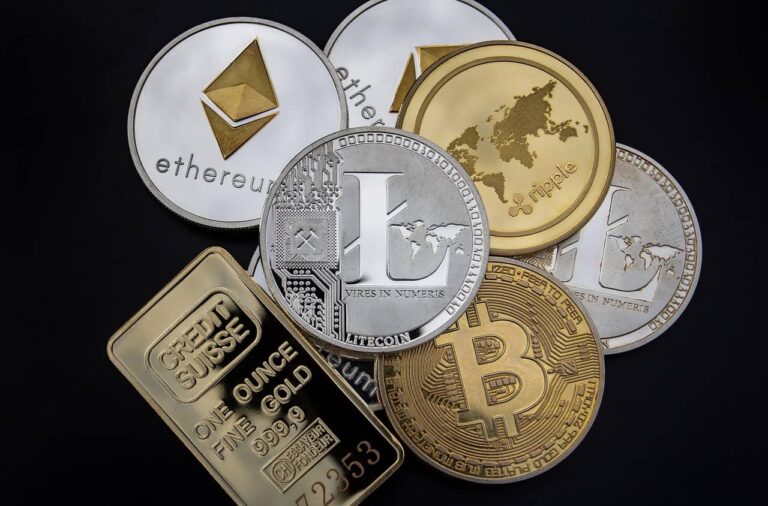A utility token is a type of crypto that gives holders access to a specific product or service, often within a blockchain-based platform. Unlike security tokens, they don’t offer ownership rights. Instead, they operate like digital coupons, granting privileges like discounted fees or access to premium features.
These tokens are typically used to raise funds during Initial Coin Offerings (ICOs). Buyers of utility tokens bet on the platform’s growth and success, expecting increased demand to raise the tokens’ value over time.
Table of Contents
The primary uses of utility tokens
Utility tokens have a wide range of uses in the digital space. Here are some of the primary uses:
- Access to services: One of the key uses of utility tokens is to provide holders with access to specific services within a blockchain platform. E.g., they can be used to pay for transaction fees or use certain decentralized application (dApp) features;
- Voting rights: Some utility tokens grant holders voting rights, allowing them to participate in the governance of the blockchain platform. This can involve decisions on upgrades, changes in policies, or the future development direction of the platform;
- Rewards and incentives: In many blockchain networks, utility tokens serve as rewards for network participation. This can be for actions such as validating transactions, mining new blocks, providing liquidity, or contributing to the development of the platform in some way.
The specific uses of utility tokens can vary greatly depending on the unique design and rules of the particular blockchain platform.
Governance token vs. utility token
Governance tokens and utility Tokens play distinct roles in the cryptocurrency ecosystem. Here’s a comparison between the two:
Governance tokens:
- This token gives holders the right to vote on the project’s future decisions. This can include decisions on updates, protocol changes, fee structures, and other key aspects of the platform’s governance;
- They are essentially a tool for decentralized decision-making. This allows token holders to shape the direction and rules of a blockchain platform;
- Some popular examples of governance tokens are Maker (MKR) in the MakerDAO system and Compound (COMP) in the Compound finance ecosystem.
Utility tokens:
- Utility tokens provide access to a specific product or service within a blockchain platform, often functioning like digital coupons;
- They typically don’t provide governance rights but allow users to interact with the platform’s features or services. This can include paying for transactions, accessing premium features, or earning rewards for participating in the platform’s ecosystem;
- Popular examples of utility tokens include Binance Coin (BNB), which offers reduced trading fees on the Binance platform, and Filecoin (FIL), which is used for buying and selling storage space in the Filecoin network.
Is Bitcoin a utility token?
No, Bitcoin is not a utility token. Bitcoin is typically classified as a “cryptocurrency” or a “digital currency.” Creators designed Bitcoin to function as a decentralized electronic cash system. They intended it to serve as a medium of exchange. It does this without needing intermediaries, such as banks.
You can use Bitcoin to pay for services and goods online. This applies to merchants who accept Bitcoin. However, unlike a utility token, Bitcoin doesn’t grant access to a specific product or service within a blockchain platform.
Are NFTs utility tokens?
No, NFTs (Non-Fungible Tokens) are not utility tokens. They are cryptographic tokens on a blockchain that proof of authenticity or represent ownership of a unique item or piece of content. Unlike utility tokens, each NFT has a distinct value and specific information that another token cannot directly replace. NFTs find common use in various fields.
These include art, real estate, and digital collectibles. Any area requiring unique digital assets also utilizes NFTs. Some NFTs may display utility-like features, such as granting access to services. However, their unique and non-interchangeable nature sets them apart. As a result, we do not classify them as utility tokens.
Utility token examples
Here are a few examples of well-known utility tokens:
Binance Coin (BNB): Binance Coin is used on the Binance cryptocurrency exchange to pay for trading fees, participate in token sales, and more. Holders of BNB tokens receive discounts on transaction fees within the Binance platform;
Ethereum (ETH): While Ethereum serves as a native currency for the Ethereum platform, it also acts as a utility token. It is used for transaction fees and computational services on the Ethereum network, particularly in executing smart contracts and DApps;
Chainlink (LINK): Chainlink’s LINK token is used to pay for data services on the Chainlink network. The network connects smart contracts with off-chain real-world data.
Utility token is integral to a blockchain ecosystem’s operation
A utility token is a unique form of digital asset created by a project designed to grant users access to a specific product or service within a blockchain platform.
They are often integral to a blockchain ecosystem’s operation, offering users various forms of interaction such as access to services, granting voting rights, providing rewards, enabling platform interactions, offering discounts, and allowing staking. These tokens have also changed how blockchain projects raise capital, making Initial Coin Offerings (ICOs) a popular fundraising method.
While they hold vast potential, potential investors must also be aware of the risks involved, including regulatory uncertainty, project failure, and price volatility. Therefore, before investing, it’s essential to understand a utility token’s specific use case and its potential value within its respective ecosystem.
Read also: How to reduce cryptocurrency fees: saving on the Web3 is possible












